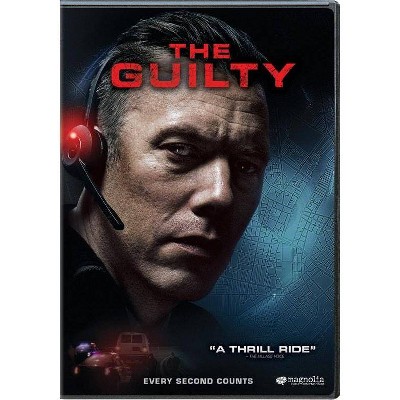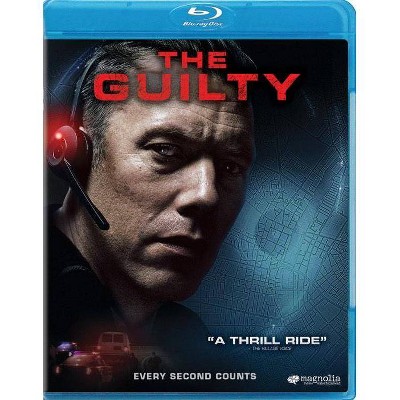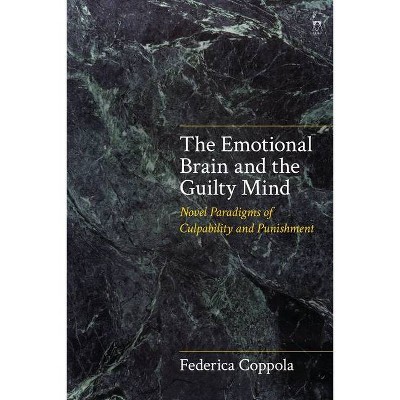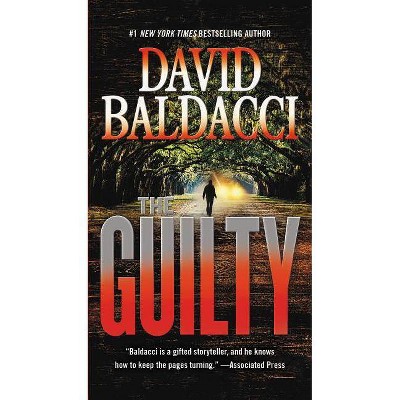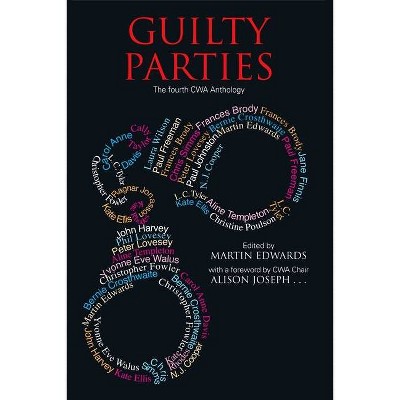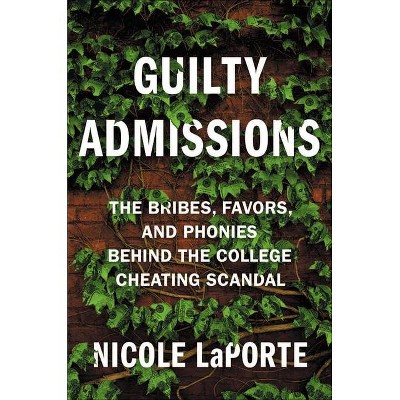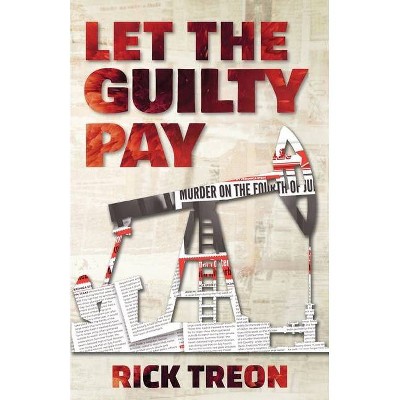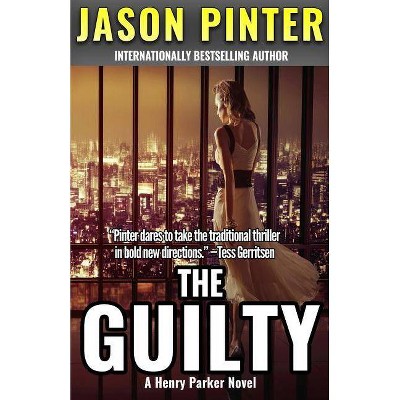Why the Innocent Plead Guilty and the Guilty Go Free - by Jed S Rakoff (Hardcover)

Similar Products
Products of same category from the store
AllProduct info
<p/><br></br><p><b> About the Book </b></p></br></br>"A senior federal judge's incisive, unsettling exploration of some of the paradoxes that the define the judiciary today: among them, why innocent people plead guilty, why high-level executives aren't prosecuted, why you won't get your day in court, and why the judiciary is curtailing its own constitutionally mandated power"--<p/><br></br><p><b> Book Synopsis </b></p></br></br><p><b>A senior federal judge's incisive, unsettling exploration of some of the paradoxes that define the judiciary today, <i>Why the Innocent Plead Guilty and the Guilty Go Free</i> features essays examining why innocent people plead guilty, why high-level executives aren't prosecuted, why you won't get your day in court, and why the judiciary is curtailing its own constitutionally mandated power.</b> <p/>How can we be proud of a system of justice that often pressures the innocent to plead guilty? How can we claim that justice is equal when we imprison thousands of poor Black men for relatively modest crimes but rarely prosecute rich white executives who commit crimes having far greater impact? How can we applaud the Supreme Court's ever-more-limited view of its duty to combat excesses by the president? <p/>The federal judge Jed S. Rakoff, a leading authority on white-collar crime, explores these and other puzzles in <i>Why the Innocent Plead Guilty and the Guilty </i><i>Go Free</i>, a startling account of our broken legal system. Grounded in Rakoff's twenty-four years as a federal trial judge in New York in addition to the many years he worked as a federal prosecutor and criminal defense lawyer, Rakoff 's assessment of our justice system illuminates some of our most urgent legal, social, and political issues: plea deals and class-action lawsuits, corporate impunity and the death penalty, the perils of eyewitness testimony and forensic science, the war on terror and the expanding reach of the executive branch. A fundamental problem, he reveals, is that the judiciary is constraining its own constitutional powers. <p/>Like few others, Rakoff understands the values that animate the best aspects of our legal system--and has a close-up view of our failure to live up to these ideals. But he sees within this gap great opportunities for practical reform, and a public mandate to make our justice system truly just.</p><p/><br></br><p><b> Review Quotes </b></p></br></br><br><p>"In <i>Why the Innocent Plead Guilty</i>, Rakoff reaches far beyond corporate boardrooms to highlight an array of shortcomings within the criminal justice system. His proposed fixes are worthy of consideration but also lay bare a harsh reality . . . [A] pithy and persuasive work."<br><b>--Michael Bobelian, <i>The Washington Post</i><br></b><br>"An elegant broadside . . . The precision with which Rakoff presents his arguments belies his outrage at a system that has gone wrong at multiple turns." <br><b>--Michael O'Donnell, <i>The New York Times Book Review</i></b> <p/>"Federal judge Rakoff debuts with an excoriating and exceptionally knowledgeable analysis of flaws in the U.S. justice system . . . Rakoff builds his case with precise evidence and clear intent. The result is a persuasive and practicable call for reform."<br><b>--<i>Publishers Weekly</i></b> <p/>As [Rakoff] makes clear, our justice system affects all of us. We pay dearly--financially and otherwise--when people are imprisoned falsely or for longer than they should be. In addition to laying out the flaws, Rakoff offers practical solutions.<br><b>--<i>Kirkus Review</i></b> <p/> At times scathing, provides readers one-stop-shopping for what he has learned about the justice system during his long stretch on the bench.<br><b>--</b><b>Randy Maniloff</b><b>, <i>ABA Journal</i></b> <p/>Well-informed and provocative.<br><b>--</b><b><i>Shelf Awareness</i></b> <p/>One of our foremost legal intellectuals, Senior U.S. District Court Judge Jed S. Rakoff is an inveterate optimist with a broken heart. In this vital yet amiable jeremiad, he challenges his fellow jurists on their dereliction of duty. They stand charged with having helped strip Americans of their constitutional right to trial and due process, of being handmaidens to our mass incarceration crisis, of having assented to excess punishment for the innocent and poor while having acceded to the mollycoddling of the rich and powerful. With penetrating insights that flow like silk, he offers a full indictment of our broken justice system--with clear reform proposals to help us out of this dire predicament.<br><b>--Jesse Eisinger, author of <i>The Chickenshit Club: Why the Justice Department Fail to Prosecute Executives</i></b> <p/>How does our justice system really work? Judge Rakoff knows and has raised the curtain on it all. In this brilliant, lucid and gripping account, discover how the beliefs we have about fairness and equity are challenged through reason and years of judicial experience. Rakoff reveals what actually goes on in a courthouse and it is downright frightening.<br><b>--Michael S. Gazzaniga, Director of the SAGE Center for the Study of Mind, University of California-Santa Barbara, and author of <i>The Consciousness Instinct</i></b> <p/>"Judge Rakoff's insightful anatomy of the Nation's state of justice provides the knowledge and understanding of its fundamental flaws and pathways to reform. Analyzed with the unique experience of a prosecutor, defense attorney, teacher and judge, Judge Rakoff powerfully outlines what's needed to form a "more perfect union [and] establish justice" in our courtrooms and prosecutorial offices--citizens unafraid to vote for change and fairness as with the First Step Act. <i>Why the Innocent Plead Guilty</i> is a must read for all stakeholders in the American justice system."<br><b> --Louis J. Freeh, former Director of the Federal Bureau of Investigation and United States District Judge for the Southern District of New York</b> <p/>Judge Jed Rakoff, one of America's most prolific, informed, and outspoken judges, inside and outside the courtroom, articulately considers many inputs to the judicial process that distort and debase the system in insidious ways. Fortunately, for each unjust and damaging practice he also suggests corrective steps that can lead to a system of true justice. Appealing to science, to citizens, and to legislators and judges he turns what could be a judicial horror story into an optimistic invocation.<br><b>--Rush D. Holt, former Member of Congress and CEO Emeritus of the American Association for the Advancement of Science</b> <p/>America has many smart judges, and a few of them are pioneering in their decisions. Of that small number, however, only a handful are so intellectually creative, scientifically literate, and politically subtle as to become nationally renowned. Jed Rakoff, of the influential US District Court of Southern Manhattan, is one of that rare breed. In our national time of troubles, Rakoff's fascinating <i>Why The Innocent Plead Guilty and the Guilty Go Free </i>could not be more timely or important.<br><b>--Robert D. Putnam, Professor of Public Policy at Harvard University and author of <i>Bowling Alone</i> and <i>The Upswing</i></b> <p/>There is something rotten in Justice Land. So says Jed Rakoff, former prosecutor, defense attorney, turned Federal Judge. We convict innocent people based on dubious science. We imprison poor Black and brown men for small crimes while rarely prosecuting rich white executives for bigger ones. We incarcerate people in massive numbers. We routinely violate constitutional notions of fair play. In shining a light on the problems with our justice system, Rakoff spurs us to take actions to fix things. Now more than ever, his incredible, wonderfully expressed insights need our full and sustained attention to give us a justice system that we can all be proud of.<br><b>--Elizabeth Loftus, Distinguished Professor, Psychological Science and Law, University of California, Irvine</b> <p/>"A searing indictment of our criminal justice system by a federal judge who has seen how the system really works. Judge Rakoff has written a magnificent book that in a very accessible manner describes how innocent people are convicted and denied relief, while guilty people go free. This is the best book I have read on what must be fixed to have a just administration of criminal laws in the United States."<br><b>--Erwin Chemerinsky, Dean and Jesse H. Choper Distinguished Professor of Law, University of California, Berkeley School of Law</b> <p/><b></b>This book is both required reading and a compelling call to action. In this bracing work, Judge Rakoff combines rigorous analysis of his 24 years on the bench, his prior experiences as a prosecutor and as a defense attorney, and his journey as the brother of a brutally murdered man. It exposes how reliance on plea bargains, demonstrably faulty forensic and eyewitness evidence, negligible oversight, and deference to the executive branch all lead even innocent people to plead guilty, produce the massive sentences making the US the most incarcerating society in history, and fail to hold the heads of large companies responsible for corporate frauds. It suggests specific reforms--such as requiring prosecutors to spend some months each year as defense attorneys--while rightly urging voters to demand better for what is done in all our names.<br><b>--Martha Minow, 200th Anniversary University Professor at Harvard University and author of <i>When Should Law Forgive?</i></b> <p/>Judge Rakoff has produced the finest and most incisive critique of the shortcomings of our criminal and civil justice systems. Drawing on a wealth of first-hand experience, he shatters many of our foundational myths: that our justice system is based on jury trials; that people do get their day in court; that eye witness identification and forensic evidence are reliable; and that only the guilty plead guilty or are found guilty. This important and timely book should be required reading for anyone who cares about our system of justice.<br><b>--Gary P. Naftalis, former Assistant U.S. Attorney for the Southern District of New York and co-author of <i>The Grand Jury: An Institution on Trial</i></b> <p/>A number of judges write with style and verve, as does Judge Rakoff. But he writes with something additional: passion. After 25 years on the bench, he has sadly concluded "our system of justice is broken and needs to be fixed." Among his targets are the striking fact that 2.2 million Americans are incarcerated -- 25% of the world's prisoners -- and that mandatory minimum sentences impose long and arbitrary sentences, often on minor offenders. Yet, crime levels are falling. Moving from the poor to the rich, he is also disturbed that corporate crime results only in toothless deferred prosecution agreements and that the executives who planned the crime rarely receive punishment. No other judge tells it like it is in harder hitting words. Still, Judge Rakoff remains among the most respected trial judges in the nation. This book is written not for academics or the legal elite, but the broader public. He needs to be heard.<br><b>--John C. Coffee, Jr., the Adolf A. Berle Professor of Law at Columbia University Law School and Director of its Centre on Corporate Governance</b> <p/>The inhumane paradoxes and mass injustices of our courts come alive in Judge Jed Rakoff's new book. Ranging from false guilty pleas, mass incarceration, and brain science, to sharp limits on the Great Writ of habeas corpus, and the nonprosecution of white collar offenders after the Great Recession, Judge Rakoff delivers, with characteristic passion, wit, and empirics, a must-read collection of explosive chapters that puncture one justice system myth after another.<br><b>--Brandon L. Garrett, Professor of Law at Duke University and Faculty Director of the Wilson Center for Science and Justice</b> <p/>In <i>Why the Innocent Plead Guilty</i>, Judge Rakoff draws on his decades of courtroom experience and wide-ranging expertise to identify and astutely analyze patterns of injustice. This honest and trenchant critique of the justice system from one of the nation's most distinguished judges is a must-read for anyone seeking greater understanding of where the system has gone wrong and how it can, and must, do better.<br><b> --Risa L. Goluboff, Dean and Arnold H. Leon Professor of Law at University of Virginia School of Law </b> <p/>Long lauded for the intelligence, precision, and persuasiveness of his judicial opinions, Judge Jed Rakoff is also, not surprisingly, a master of the art of storytelling. Given the tragic eccentricities of human behavior and the manifold quirks of our justice system, Judge Jed also has some remarkable material to work with. Moving fluidly from neuroscience and forensic science, to corporate malfeasance and the true significance of the Magna Carta, Rakoff harnesses astonishing facts and engages the reader with tales of injustice, incompetence, irrationality and outright boldface corruption. In doing so he reveals both the lofty ideals and maddening shortcomings of a justice system that affects us all, but few actually comprehend. At the heart of this collection of stories, however, lies hope. While Rakoff draws an unnerving picture of a justice system that is failing its mission, he rightly notes that our "belief that justice will ultimately prevail is what keeps us going." Science, reason, compassion, and - above all - leadership, will carry the day. As we fall in rank with this leader, Judge Jed Rakoff, one cannot help but cheer him on as one of the great social reformists of our time.<br><b>-- Thomas D. Albright, professor and Conrad T Prebys Chair of The Salk Institute for Biological Studies</b></p><br><p/><br></br><p><b> About the Author </b></p></br></br>Jed S. Rakoff is a senior judge of the United States District Court for the Southern District of New York and an adjunct professor at both Columbia University Law School and New York University Law School. Since going on the bench in 1996, Rakoff has authored more than 1,800 judicial opinions. He has served as a commissioner for the National Commission on Forensic Science and as cochair of the National Academy of Sciences' committee on eyewitness identification. He has also assisted the U.S. Departments of Commerce and State in training judges in a dozen countries. Rakoff is a regular contributor to <i>The New York Review of Books</i>. In 2014, he was listed by <i>Fortune </i>magazine as one of the World's 50 Greatest Leaders.
Price History
Price Archive shows prices from various stores, lets you see history and find the cheapest. There is no actual sale on the website. For all support, inquiry and suggestion messages communication@pricearchive.us

